Premium Only Content
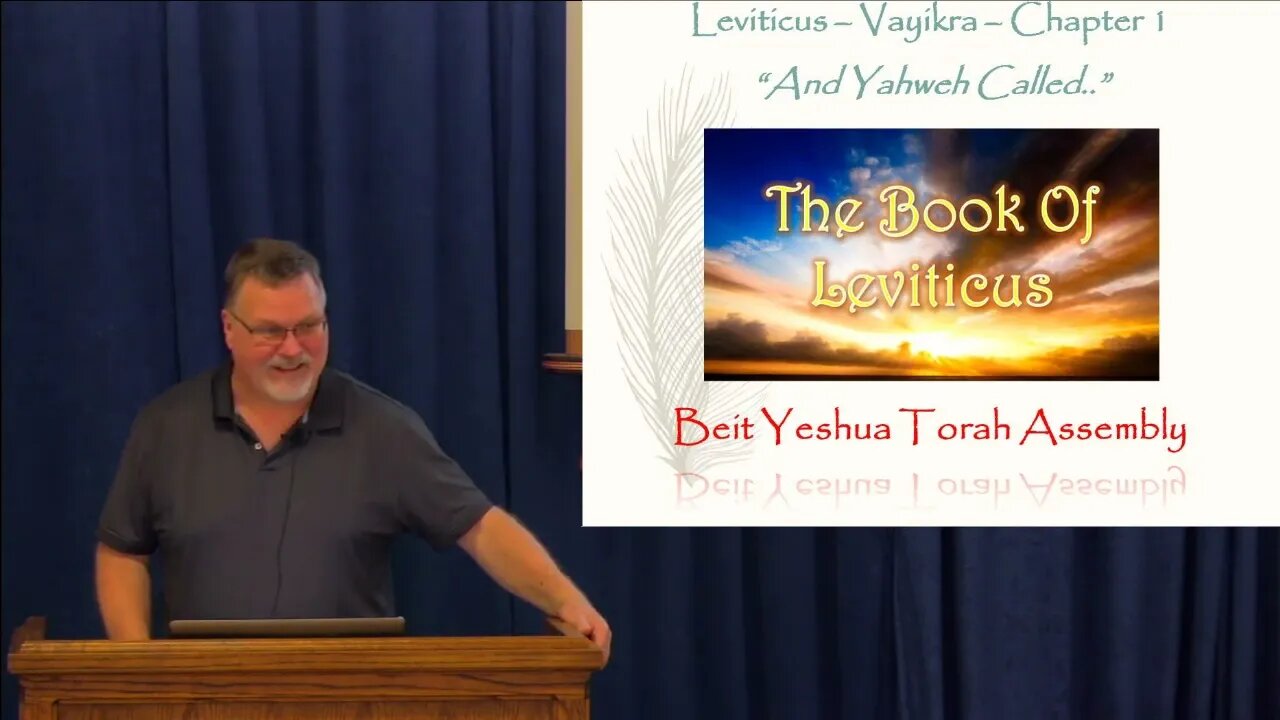
Leviticus Chapter 1
Leviticus is not known for being the thrilling book in Scripture to read or study. As a matter of fact, the first time I read through it, I couldn't wait for it to be over. This book consists of worship, sacrifice, ceremony, ritual, liturgy, instructions, washings, convocations, holy days, observances, conditions, and warnings. In and of itself, the book seemed downright boring to my "Christian" nature in those days.
This book is largely overlooked by Christianity altogether because they are under the delusion that Elohim changed and that His specific rules for righteousness are no longer valid. For most of my life, I felt the same way. It wasn't until I realized my identity in Israel that I saw the tremendous importance of Torah. At one time I believed that this book could only be considered in light of the New Testament. That is simply not true. While this book does point to the Messiah in many and various ways, Leviticus defines for us the righteousness and right-rulings of Elohim Himself. Paul says in many places that the Torah (law) was also written for our instruction (Romans 15:4).
This book gives Israel the rules for living, conduct, family, sexual practice, personal conduct, business conduct, and worship (and more). What we will find out in Leviticus is that the commanded ritual and ceremony in this book points to the person of Yeshua Messiah.
Leviticus tells us that the only way for a sinner to approach Elohim is through a sacrifice. The word atonement is used 45 times in Leviticus. "Atonement" means to "cover up." The blood of goats and bulls never did wash away the sins of those making the sacrifices, but it did cover them up.
The book of Leviticus tells us the way to Elohim is by sacrifice. There is no remission of sins without sacrifice and the shedding of blood (Lev. 17:11). Through these sacrifices the awfullness of our sin is made clear in a very real and graphic manner (Heb. 10:1-3).
Christianity falsely teaches that sacrifices were done away with when Yeshua became our sacrifice. This is simply not true. The death of Yeshua did not put an end to the sacrificial system at all. The death of Yeshua gave more MEANING to the sacrificial system. And the sacrificial system was still practiced after the time of Yeshua by His followers. Peter and John took part in the Temple sacrifices after Yeshua ascended in Acts (Acts 3:1). We know that Paul took part in the sacrifices of the Feast days like the Feast of Weeks (Pentecost) (Acts 20:16). The celebration of Pentecost involved sacrifices (Num. 28:26-27). Paul took the Nazarite vow which involved offerings (sacrifices) (Acts 21:23-24). Paul also offered sacrifices later in his life (Acts 24:17-18). We are told that after Yeshua returns, the Temple will be rebuilt and sacrifices will resume (Zech. 14:16-21, Isa. 19:19-25, Zeph. 3:9-11, Mal. 1:11). We are told in detail of the sacrifices that will be performed when Messiah returns in the last chapters of Ezekiel (Ezek. 40-48).
Leviticus also teaches us we cannot walk with Elohim unless He sanctifies us. (Sanctification means to be made holy, or "set apart.") The word holiness occurs 87 times in this book.
Those who are redeemed by the shed blood of Yeshua Messiah must live a holy (set apart) life in order to have fellowship with Him and worship and enjoy Him (Heb 13:20-21).
These things, the sacrificial death of Yeshua Messiah, the awfulness of our sin, and the importance of sanctification are the main themes for His people in the book of Leviticus. There is no more important book in Scripture.
Beit Yeshua Torah Assembly
http://beityeshua.com/
-
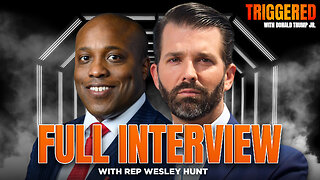 LIVE
LIVE
Donald Trump Jr.
4 hours agoThe Hunt for Solutions: Interview with Rep Wesley Hunt | TRIGGERED Ep.246
10,536 watching -
 LIVE
LIVE
BonginoReport
1 hour agoMedia Run Cover For Biden’s Illegal Terrorist - Nightly Scroll w/ Hayley Caronia (Ep.60)
3,771 watching -
 LIVE
LIVE
The Jimmy Dore Show
57 minutes agoRogan CLASHES w/ Bono Over USAID Funding! Palantir Will Soon Have All Our Data! w/ Gabor Maté
4,539 watching -

Kim Iversen
4 hours agoTrump Just Signed Off On The Deep State Spying On You
50.8K43 -
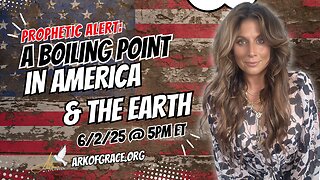 1:16:31
1:16:31
Ark of Grace Ministries
3 hours agoProphetic Alert: A Boiling Point in America and the Earth
19.3K8 -
 32:22
32:22
Stephen Gardner
1 hour ago🔥Lindsey Graham Betrays Trump as Putin Readies MASSIVE ATTACK!
10.9K28 -
 38:55
38:55
Kimberly Guilfoyle
8 hours agoThe Trump effect, live with Jarrett Stepman & Mike Davis | Ep226
67K16 -
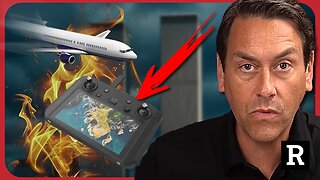 39:27
39:27
Redacted News
2 hours ago“The 9/11 Hijackers Never Flew the Planes” – Airline Captain Dan Hanley Drops BOMBSHELL | Redacted
42.1K147 -
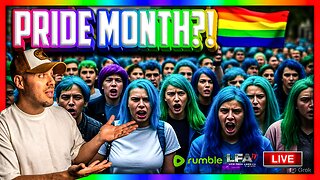 LIVE
LIVE
LFA TV
21 hours agoLFA TV ALL DAY STREAM - MONDAY 6/2/25
884 watching -
 1:14:25
1:14:25
Untamed Nation
2 hours ago🚨URGENT WARNING: THEY ARE ABOUT TO DO ANOTHER 9/11 ⚠ | 2 JUNE 2025
24K10